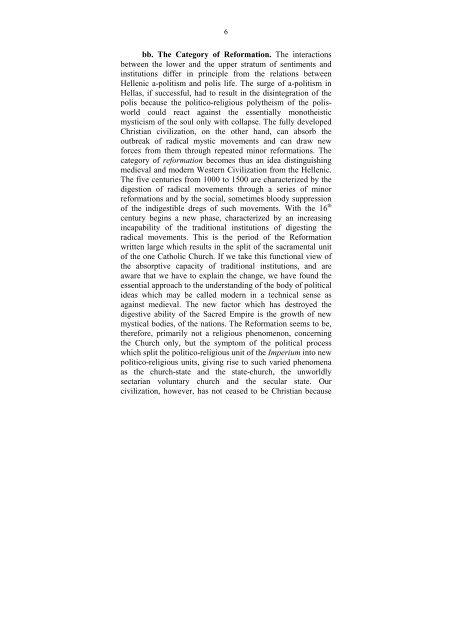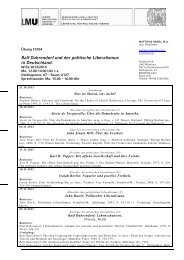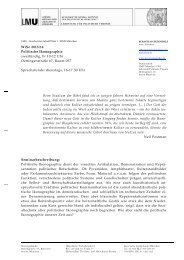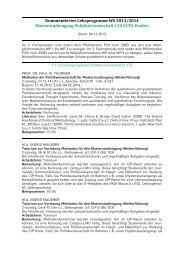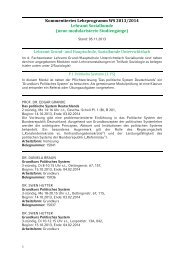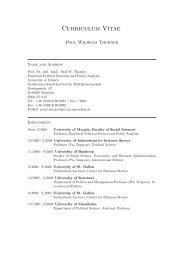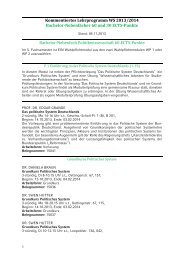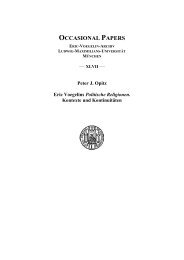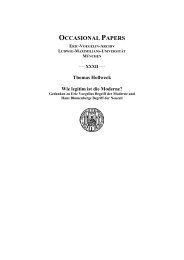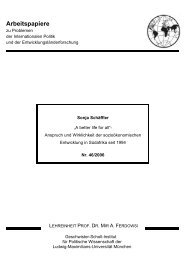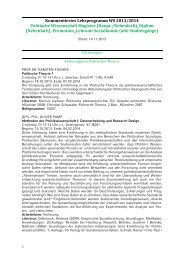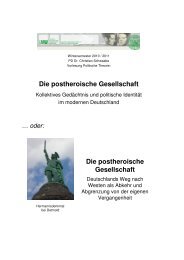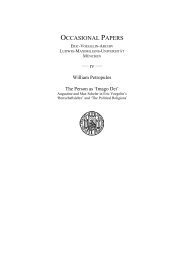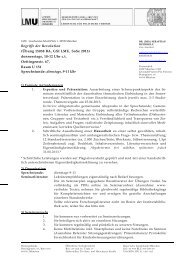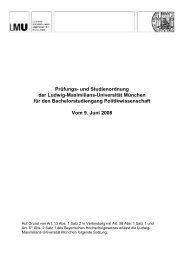Eric Voegelin The People of God - Geschwister-Scholl-Institut für ...
Eric Voegelin The People of God - Geschwister-Scholl-Institut für ...
Eric Voegelin The People of God - Geschwister-Scholl-Institut für ...
Create successful ePaper yourself
Turn your PDF publications into a flip-book with our unique Google optimized e-Paper software.
6<br />
bb. <strong>The</strong> Category <strong>of</strong> Reformation. <strong>The</strong> interactions<br />
between the lower and the upper stratum <strong>of</strong> sentiments and<br />
institutions differ in principle from the relations between<br />
Hellenic a-politism and polis life. <strong>The</strong> surge <strong>of</strong> a-politism in<br />
Hellas, if successful, had to result in the disintegration <strong>of</strong> the<br />
polis because the politico-religious polytheism <strong>of</strong> the polisworld<br />
could react against the essentially monotheistic<br />
mysticism <strong>of</strong> the soul only with collapse. <strong>The</strong> fully developed<br />
Christian civilization, on the other hand, can absorb the<br />
outbreak <strong>of</strong> radical mystic movements and can draw new<br />
forces from them through repeated minor reformations. <strong>The</strong><br />
category <strong>of</strong> reformation becomes thus an idea distinguishing<br />
medieval and modern Western Civilization from the Hellenic.<br />
<strong>The</strong> five centuries from 1000 to 1500 are characterized by the<br />
digestion <strong>of</strong> radical movements through a series <strong>of</strong> minor<br />
reformations and by the social, sometimes bloody suppression<br />
<strong>of</strong> the indigestible dregs <strong>of</strong> such movements. With the 16 th<br />
century begins a new phase, characterized by an increasing<br />
incapability <strong>of</strong> the traditional institutions <strong>of</strong> digesting the<br />
radical movements. This is the period <strong>of</strong> the Reformation<br />
written large which results in the split <strong>of</strong> the sacramental unit<br />
<strong>of</strong> the one Catholic Church. If we take this functional view <strong>of</strong><br />
the absorptive capacity <strong>of</strong> traditional institutions, and are<br />
aware that we have to explain the change, we have found the<br />
essential approach to the understanding <strong>of</strong> the body <strong>of</strong> political<br />
ideas which may be called modern in a technical sense as<br />
against medieval. <strong>The</strong> new factor which has destroyed the<br />
digestive ability <strong>of</strong> the Sacred Empire is the growth <strong>of</strong> new<br />
mystical bodies, <strong>of</strong> the nations. <strong>The</strong> Reformation seems to be,<br />
therefore, primarily not a religious phenomenon, concerning<br />
the Church only, but the symptom <strong>of</strong> the political process<br />
which split the politico-religious unit <strong>of</strong> the Imperium into new<br />
politico-religious units, giving rise to such varied phenomena<br />
as the church-state and the state-church, the unworldly<br />
sectarian voluntary church and the secular state. Our<br />
civilization, however, has not ceased to be Christian because


